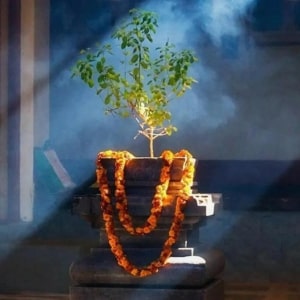Diwali, also known as Deepavali, is one of the most significant and widely celebrated festivals in India and among the Indian diaspora around the world. This festival of lights marks the victory of light over darkness and good over evil. While many people know about the main day of Diwali when the entire country lights up with lamps, candles, and fireworks, few are aware that Diwali is not just a one-day affair. Diwali is celebrated over the course of five days, and each day carries its own unique significance and rituals. So, in this article we will answer the question why is Diwali celebrated for 5 days and significance of each day.

Day 1: Dhanteras
Diwali celebrations kick off with Dhanteras, which is the first day of the festival. It falls on the thirteenth day of the dark fortnight of the month of Ashwin (usually in October or November). On this day, people worship Lord Dhanvantari, the god of Ayurveda and health, and seek blessings for good health and prosperity. Many families also buy gold or silver items, as it is believed that making such purchases on Dhanteras brings good fortune.
Day 2: Naraka Chaturdashi or Choti Diwali
The second day of Diwali is known as Naraka Chaturdashi or Choti Diwali. It is believed to be the day when Lord Krishna defeated the demon Narakasura and rescued 16,000 captive princesses. To celebrate this victory of good over evil, people light oil lamps, burst firecrackers, and take an early morning oil bath to cleanse their bodies and souls.
Day 3: Diwali or Deepavali
The third day is the main day of Diwali, celebrated with great enthusiasm and splendor. This is the day when Lord Rama returned to Ayodhya after defeating the demon king Ravana and completing his fourteen years of exile. The entire city of Ayodhya was illuminated with lamps to welcome him back. In honor of this event, people decorate their homes with oil lamps, candles, and colorful rangoli designs. Families come together, exchange gifts, and share delicious meals. Fireworks light up the night sky, symbolizing the victory of good over evil.
Also Read: How to Explain Diwali to a Child?
Day 4: Govardhan Puja
The fourth day of Diwali is dedicated to Govardhan Puja, which commemorates Lord Krishna’s lifting of the Govardhan Hill to protect the villagers from torrential rain. People prepare and offer a variety of vegetarian dishes to Lord Krishna, build miniature Govardhan Hill from cow dung, and worship it. This day also signifies gratitude toward nature and the environment.
Day 5: Bhai Dooj
The fifth and final day of Diwali is Bhai Dooj, a day dedicated to the bond between brothers and sisters. Sisters pray for their brothers’ long and prosperous lives, and brothers offer gifts to their sisters as a token of love and affection. This day celebrates the special relationship and love shared between siblings.
Symbolism and Significance
The five-day celebration of Diwali carries deep spiritual and cultural significance. Each day represents a unique facet of the festival’s overarching theme of triumphing over darkness and evil, leading to the ultimate victory of light and goodness. Diwali also serves as a time for families to come together, offer prayers, express gratitude, and strengthen the bonds of love and respect among their members.
Diwali is not just a one-day festival but a five-day celebration that holds deep-rooted significance in Indian culture and tradition. Each day of Diwali has its own story, rituals, and symbolism, contributing to the overall message of triumph over darkness and the victory of good over evil. Beyond the festivities, Diwali is a time for reflection, gratitude, and togetherness, fostering a sense of unity and joy among families and communities.
We hope this article “Why is Diwali Celebrated for 5 Days?” has shed light on the rich tapestry of Diwali and enriched your appreciation of this extraordinary festival.





